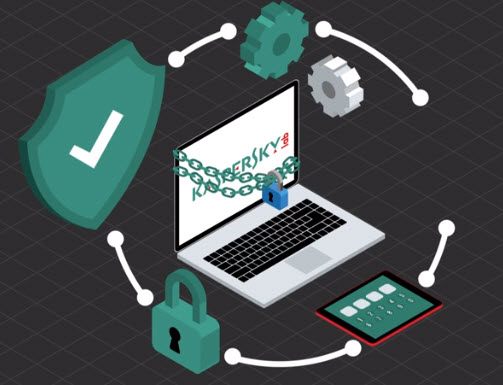No system is safe. This is the first thing we learn from Hollywood films about hackers. And it is perfectly true, although some people running small businesses don’t think so. They mistakenly believe that if their company has fewer employees and smaller annual revenue, it is not of interest to hackers. But the truth is, that small business is not only can be hacked at some point, it also has not enough resources and the knowledge to be adequately protected from cyberattacks.Indeed, small enterprises typically have fewer digital assets than the large corporations, but also, they are less secure.
Cyberattacks on small businesses can result in data breaches,extortions, freezing business operations and costly outages not to mention damage to reputation and loss of customers’ trust. The consequences could be even worse if data stolen by hackers ends up on the dark web. Threat actors of all kinds could buy this data which can include sensitive business information and customers information and use it for nefarious purposes. That is why protection from cybersecurity risk must be one of the of priorities for small businesses.
What small businesses can do to protect themselves from
hackers
Protect your small business from hackers on the dark web
with dark web monitoring
For those unfamiliar with the term dark web is a hidden sector of the Web you can’t access without certain instruments. Dark web is filled with hacking forums and markets trading illicit items including stolen personal and corporate data. There are also portals belonging to ransomware groups used for negotiations and selling stolen files.
To ensure your data is absent on the dark web forums and markets it is recommended to use dark web monitoring service. This kind of services provide tools for searching for your organization’s information in this hidden and heavily encrypted part of the Internet. Thesetools work similar to Google-like search engines and are able to find leaked or stolen data including passwords, emails and usernames, intellectual property, etc. that is shared and sold on the underground platforms.
Dark web monitoring services typically consist of scanners, crawlers and scrapers constantly monitoringunderground forums and markets.If they find a match, they alert the company that itsdata have been compromised.
Businesses of all sizes should monitor the dark web to find out if they have been hacked or find evidence that they are likely to be hacked. Additionally, dark monitoring services can help to learn who is compromising these companies and what technics they use.
Enforcecorporate security policies and educate your employees
To protect small businesses from data ending up on the dark web it is essential to prevent compromising corporate networks by threat actors at first place. That is why companies should apply security protocols for every aspect of their business. It worth noting that these protocols should be inherent within business strategy and cover not only standard practices but also mitigate newer risks. Standard practices include security audit and data backup which could be lifesaving in case of ransomware attack. Newer risks include social media, cloud services and apps and IoT.
It is also recommended to have an incident response plan, so in case of emergency you’ll know exactly what to do.
Organizations should educate their employees and teach them good cybersecurity practices such as using strong passwords, not reusing credentials and not clicking on untrusted links. Practice tests will help better understand security gaps.
Keep hardware and software up to date
Keeping hardware and software up to date is a key to cybersecurity every company must have. Regular patching and updating helps to block threat actors’ access to corporate networks. And, as we already know, if hackers can’t penetrate your network, they also can’t steal your data. One of the common causes of cyberattacks are software, hardware, and firmware vulnerabilities.Regular patching helps to fix these vulnerabilities.
Anti-malware, anti-virus, and anti-spyware software should be installed on every endpoint in your corporate network. It is also recommended to deploy firewall to secure web connection. Secure Wi-Fi networks within the office and ensure your employees working from home are logged in with secure connections.










